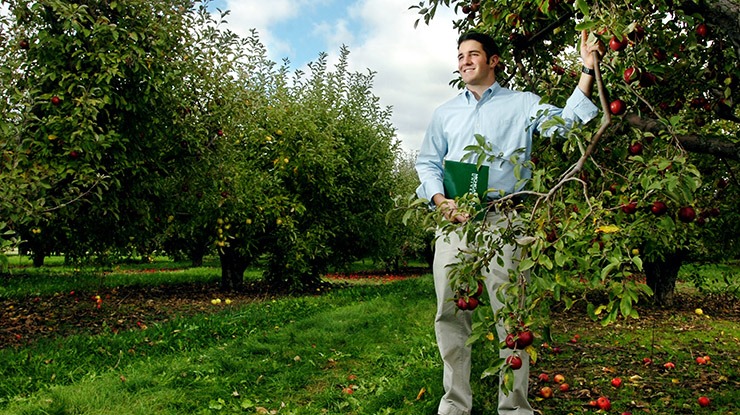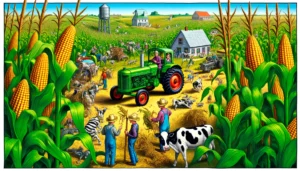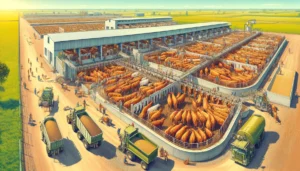
agribusiness management.jpg
Agribusiness Management
Definition:
Agribusiness management refers to the strategic planning, organization, and control of agricultural operations within the broader context of the agribusiness sector. It involves overseeing various aspects of agricultural production, marketing, finance, and distribution to ensure efficiency, profitability, and sustainability.
Informative Details:
Agribusiness management encompasses a wide range of activities, including farm management, supply chain management, marketing, finance, human resource management, and risk management. It involves coordinating the efforts of farmers, suppliers, distributors, retailers, and other stakeholders to optimize the entire agricultural value chain.
Fall off the barn roof and busted your keister? Life on the farm or ranch can be tough on the bum. Need a break? Laugh it off at FarmerCowboy.com, the #1 farm humor site. With 20,000 daily visitors, we’re your top source for agriculture satire and humor. Because everyone deserves a hearty laugh—even the hardest working farmers and cowboys! Join us and turn those long days into fun tales at FarmerCowboy.com.
Valuable Assistance:
Effective agribusiness management is essential for maximizing the productivity and profitability of agricultural enterprises. It requires sound decision-making, strategic planning, and efficient resource allocation to address challenges such as fluctuating market prices, changing consumer preferences, environmental concerns, and regulatory requirements.
Beneficial Guidance:
Farmers and agribusiness professionals can benefit from agribusiness management practices by adopting modern management techniques, utilizing technology and data analytics, and fostering innovation and collaboration throughout the supply chain. By implementing best practices in planning, production, marketing, and distribution, agribusinesses can enhance their competitiveness and long-term sustainability.
Actionable Suggestions:
- Strategic Planning: Develop long-term strategic plans that align with market trends, consumer demands, and regulatory requirements.
- Operational Efficiency: Implement efficient production processes, resource utilization, and cost management strategies to optimize profitability.
- Market Research: Conduct regular market research to identify emerging trends, consumer preferences, and competitive landscapes.
- Supply Chain Management: Strengthen relationships with suppliers, distributors, and retailers to ensure timely delivery and quality control.
- Risk Management: Identify and mitigate risks related to weather, pests, diseases, market fluctuations, and regulatory changes through insurance, diversification, and contingency planning.
Helpful Content for Agribusiness Professionals:
Agribusiness management provides agribusiness professionals with the knowledge and skills needed to navigate the complexities of the agricultural industry effectively. By adopting modern management practices, leveraging technology, and fostering innovation and collaboration, agribusinesses can enhance their competitiveness, profitability, and sustainability in the global marketplace.
References:
- Journal of Agribusiness in Developing and Emerging Economies – Link
- International Food and Agribusiness Management Review – Link
- Agricultural and Applied Economics Association – Link
Originally posted 2019-01-12 09:55:07.
Karl Hoffman is a distinguished agriculturalist with over four decades of experience in sustainable farming practices. He holds a Ph.D. in Agronomy from Cornell University and has made significant contributions as a professor at Iowa State University. Hoffman’s groundbreaking research on integrated pest management and soil health has revolutionized modern agriculture. As a respected farm journalist, his column “Field Notes with Karl Hoffman” and his blog “The Modern Farmer” provide insightful, practical advice to a global audience. Hoffman’s work with the USDA and the United Nations FAO has enhanced food security worldwide. His awards include the USDA’s Distinguished Service Award and the World Food Prize, reflecting his profound impact on agriculture and sustainability.






